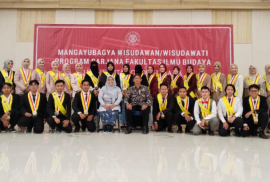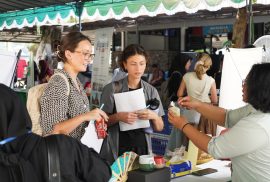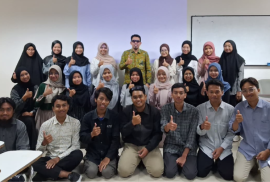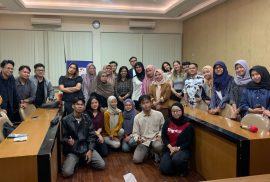Yogyakarta, 26/8/2025 – The Arabic Study Program, Faculty of Cultural Sciences, Universitas Gadjah Mada, proudly graduated 35 students at the Undergraduate and Diploma Graduation Ceremony for Period IV of the 2024/2025 Academic Year. This milestone marks a special achievement for the program, as it is the highest number of graduates produced in a single academic year.
At this ceremony, the highest Grade Point Average (GPA) among Arabic Study Program graduates was achieved by Amalia Faradilla, S.S., class of 2021, with a remarkable GPA of 3.92. Her accomplishment stands as a testament to her dedication, perseverance, and consistency throughout her undergraduate studies in Arabic Study Program at UGM.
Meanwhile, the fastest completion of study was recorded by Nada Utami Rianti, S.S., class of 2021, who successfully completed her undergraduate education in only 3 years, 9 months, and 11 days—a noteworthy achievement that reflects both discipline and academic excellence.
This graduation serves as a historic milestone for the graduates, who have completed a transformative journey of learning, research, and community engagement. The presence of these graduates reaffirms the program’s commitment to producing outstanding scholars in the field of Arabic language, literature, and culture—graduates who are well-prepared to contribute meaningfully to society.
Congratulations to all graduates of the Arabic Study Program UGM! May this achievement be the first step toward a brighter and more impactful future.
Author: Muhammad Ardiansyah









